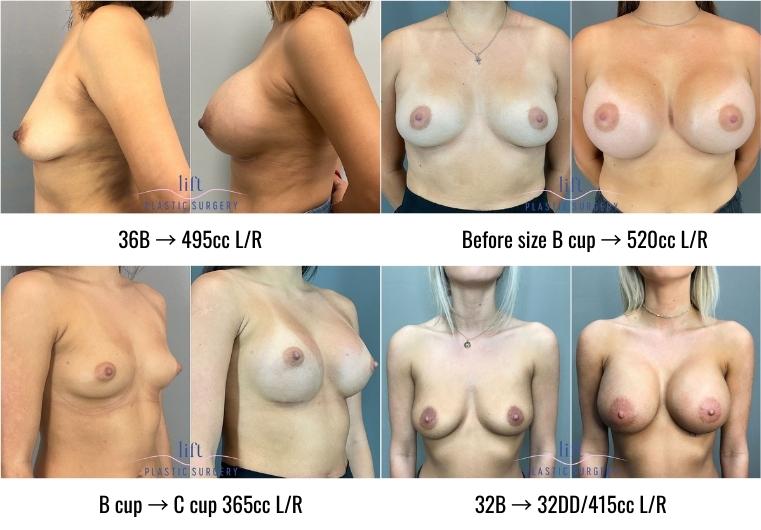Introduction to Cosmetic Surgery: A Beginner’s Guide
Cosmetic surgery can be a game-changer. It’s all about improving how you look, boosting your confidence, or even correcting a health issue. Just starting out? Here’s the scoop. Basically, cosmetic surgery includes surgeries to enhance appearance. Think facelifts, nose jobs, or liposuction. It’s essential to know this isn’t just for the rich and famous. Anyone can explore these options, given they do their homework. The first step is understanding why you want surgery. Is it for confidence, to fix a birth defect, or maybe to recover from an injury? Your motive matters big time. Next, research is your best friend. Look into the types of surgeries available, the risks involved, and, importantly, the recovery process. Don’t skip on finding a top-notch surgeon. Qualifications, experience, and a solid track record should be on your checklist. Remember, asking lots of questions and setting realistic expectations will save you from disappointment. Cosmetic surgery can offer remarkable results, but it’s not magic. It’s a journey, with planning and patience being vital. So, take your time, think it through, and make an informed decision. That’s the groundwork for stepping into the world of cosmetic surgery.
Understanding Different Types of Cosmetic Surgeries
Cosmetic surgery isn’t just about changing how you look; it’s more than that. It’s a choice to enhance or modify your appearance. But before diving in, know there are various types of cosmetic surgeries, each with its purpose. Liposuction involves removing fat from parts of the body to reshape them. It’s not a weight loss solution but a way to target areas that don’t respond well to diet and exercise. Breast augmentation or enlargement is for those looking to increase their breast size. It uses implants to achieve the desired look. On the other side, breast reduction helps those with overly large breasts that cause physical discomfort. Rhinoplasty, or nose reshaping, is opted for by people wanting to change their nose’s appearance or improve breathing. Facelifts aim to reduce wrinkles and signs of aging by tightening the skin on the face. Each of these surgeries comes with its set of risks and benefits. Always consult with a certified surgeon to understand what’s best for your needs. Remember, the goal is to make you feel good about yourself.
Essential Cosmetic Surgery Advice for First-Timers
Starting with cosmetic surgery can feel like stepping into new territory without a map. Keep it simple and focus on the essentials to navigate this journey successfully. First, research is your best friend. Look up the procedure you’re considering and understand what it entails, including the risks and recovery process. This is not just about the results but knowing what you’re signing up for.
Next, choosing the right surgeon is crucial. Don’t just go for someone because they offer a bargain. Look for board-certified professionals with a good track record. Meeting with a few surgeons to discuss your goals and concerns is a smart move. This also lets you gauge who you feel most comfortable with.
Also, set realistic expectations. Cosmetic surgery can bring positive changes, but it’s not magic. Discuss openly with your surgeon what is achievable. Remember, the goal is improvement, not perfection.
Lastly, think about aftercare and recovery. This is when your body heals and adjusts to the changes. Follow your surgeon’s advice closely during this period to ensure the best outcomes.
Remember, this is a journey to make you feel confident and happy in your skin. Take it step by step, stay informed, and choose wisely.
Evaluating Your Reasons for Wanting Cosmetic Surgery
Before you jump into the world of cosmetic surgery, it’s crucial to look at why you want it. People choose surgery for many reasons, but not all of them are good. Ask yourself, is it for you or to please someone else? If you’re chasing perfection or fixing a relationship, take a step back. These are red flags. Surgery can enhance how you look, but it won’t fix everything else. Think about what you really want. Feeling good in your skin? Or fitting an impossible ideal? Your reasons should be strong and for you. This decision is big. Make sure it’s right, for the right reasons.
How to Find a Reputable Cosmetic Surgeon
Finding a trustworthy cosmetic surgeon is key to getting the results you want safely. Start with research. Check the surgeon’s credentials. They should be board-certified in cosmetic surgery. This shows they’ve met specific standards and have the right skills. Ask for before-and-after photos of their previous work to see their expertise first-hand. Read reviews from past patients to understand their experiences. Also, consider the surgeon’s experience. More experience with the procedure you want means better odds of success. Word of mouth can be powerful. Talk to friends or family who’ve had cosmetic surgery. They can share their experiences and possibly recommend a good surgeon. Finally, during your consultation, see how you feel talking to the surgeon. Are they listening? Do they explain things in a way you understand? Trust your gut. Feeling comfortable and confident with your surgeon is essential for a positive outcome.
The Importance of a Consultation Before Proceeding
A consultation is your first step into the world of cosmetic surgery and it’s crucial. Think of it as a planning session between you and your potential surgeon. Here’s why it’s important: It helps you understand if cosmetic surgery is right for you. The surgeon will review your medical history, discuss your goals, and explain what can realistically be achieved. It’s also your chance to check the surgeon’s credentials. You want someone experienced and accredited. Use this time to ask questions. From recovery times to the risks involved, now is your moment to get all the answers. Price discussion is key as well. Cosmetic surgeries can be expensive, and prices vary widely. A consultation will give you a clearer idea of the potential costs. Lastly, it’s about gut feeling too. You need to be comfortable with your surgeon and their team. If something feels off, it might be worth considering other options. Remember, the goal of cosmetic surgery is not just to change how you look but to boost your confidence and satisfaction with your appearance. Taking the time for a thorough consultation ensures you’re stepping forward with the right information and expectations.
What to Expect: The Cosmetic Surgery Process
Deciding to get cosmetic surgery is a big move. Here’s the lowdown on what typically happens. First, you’ll have a chat with your surgeon. This is your chance to talk about what you hope to achieve and get expert advice. Your surgeon will walk you through your options and the risks involved. Next comes the planning stage. Together, you and your surgeon will decide on the best procedure for you. They’ll also tell you how to prepare for the surgery and the recovery process. The surgery itself is the big event. Depending on what you’re getting done, it might be a quick in-and-out of the hospital or require a longer stay. Recovery time varies. Some procedures let you bounce back fast. Others need weeks or even months. During this time, follow your surgeon’s advice closely to heal properly. Remember, every step of this journey is a team effort between you and your surgeon. Keep the lines of communication open to ensure the best results.
Risks and Complications: Informed Decision Making
Going under the knife for cosmetic surgery isn’t just about looking better. It’s a big decision with its sets of risks and complications. Knowledge is power here. By knowing the potential downsides, you can make a smarter, more informed choice. So, what are these risks? Well, they range from the minor to the serious. You could see things like infection, scarring, or even reactions to anesthesia. Sometimes, the result might not be what you hoped for, leading to the need for more surgery. Serious complications, although rare, include blood clots and, in extreme cases, death. Different surgeries have different risks. For instance, breast augmentation might lead to changes in breast sensation, while liposuction can cause contour irregularities. It’s crucial to chat with your doctor about these risks. They should be upfront and honest, giving you the full picture of what to expect. Remember, it’s not just about the immediate results but your health down the line. Make sure you feel comfortable and confident in your decision, knowing both the good and the potentially bad outcomes.
Recovery and Aftercare: Tips for a Smooth Healing Process
Making it through surgery is one thing, but the real game starts during recovery. Healing is key and it’s your job to nail it. Here’s how to make your recovery and aftercare as smooth as possible. First, listen to your doctor. They know their stuff and give advice that’s gold. Follow their instructions to the letter. Next, rest up. Your body needs time to heal. No lifting, pushing yourself, or skipping rest days. Sleep is your best buddy here. Pain management isn’t a maybe, it’s a must. Use the meds your doctor prescribes, but also ask about ice packs or anything else that can ease the discomfort. Keep things clean to dodge infections. That means handling your incision spots with care. Hygiene matters, so keep everything sanitized. Hydration and nutrition can’t be overlooked. Drink plenty of water and eat foods that help your body heal. Think vitamins, protein, and less of the junk food. Lastly, check-ins with your doctor are not optional. They track your progress and can catch any hiccups early. In short, heal like a pro by listening, resting, managing pain, staying clean, eating right, and keeping up with appointments. Stick to these tips, and you’ll be on the fast track to recovery.
Making Your Decision: Is Cosmetic Surgery Right for You?
Deciding to undergo cosmetic surgery is big. It’s not just about changing how you look; it’s about how it makes you feel. Ask yourself why you want this change. Is it for you, or is it to please someone else? Your motivation matters. Next, think about expectations. Cosmetic surgery can boost confidence and make you feel great, but it’s not magic. It improves appearance, sure, but it won’t fix everything in life. Be realistic about what surgery can and cannot do. Also, know your body. Everyone’s body reacts differently to surgery. What worked wonders for a friend might not do the same for you. And here’s something else—risks. Yes, risks. Like with any surgery, things can go south. Infection, scars, or even results you didn’t want; it happens. Are you prepared to handle that? Finally, costs. Insurance rarely covers cosmetic surgery, so it’s a pocket expense. Can you afford it without putting yourself in financial trouble? If after all this, you feel cosmetic surgery is right for you, then go for it. Just make sure you’re doing it for the right reasons, with clear eyes and a full heart.



